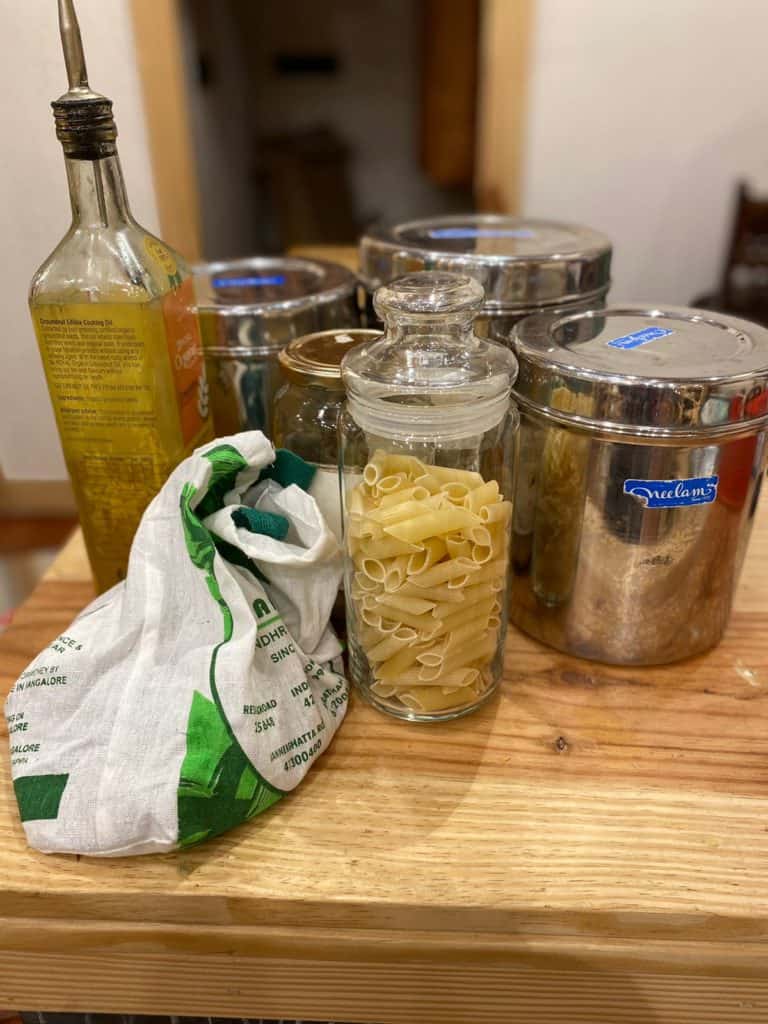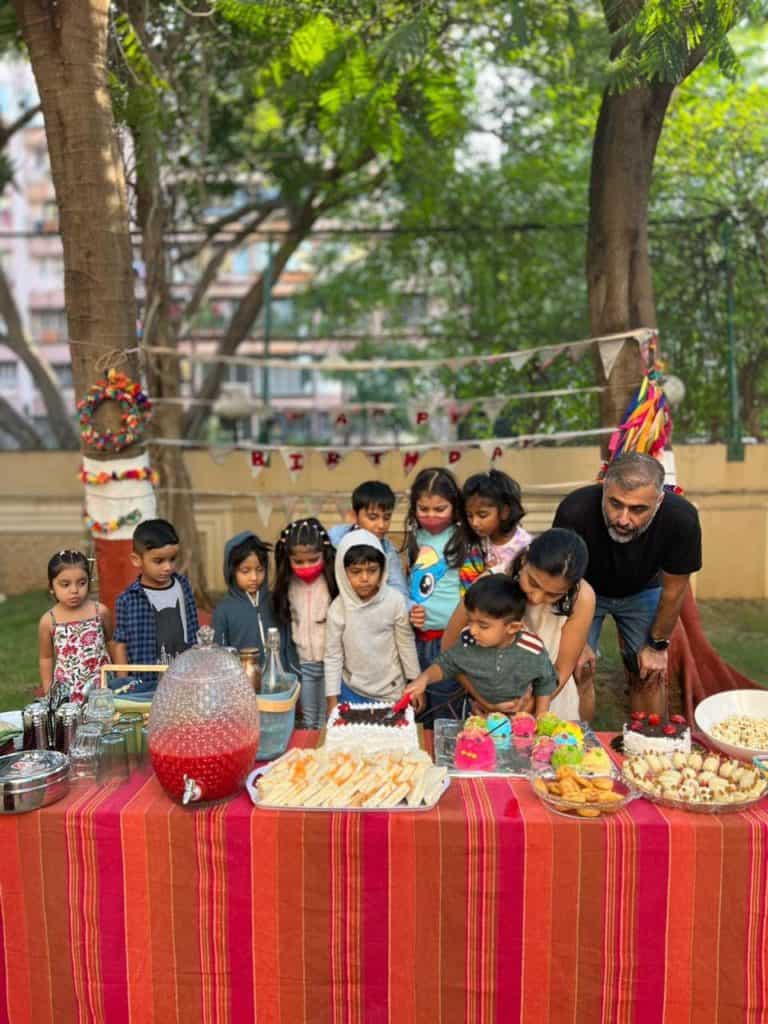We’re currently living in a climate crisis. Temperatures are rising and waste in Mumbai is piling up. While policy changes and government intervention are important to combating the future impact of the crisis, there is a lot we can do as individuals to reduce emissions and be more climate-conscious.
In a city like Mumbai, people wonder if it is possible to live a low-waste and sustainable life. After trying it myself, I’ve realised that it’s not as difficult as I had imagined. Sustainability is merely a mindful choice, more than anything else. There are many options in Mumbai to support your sustainability and make this shift easier.
Package-free shopping

Reducing the waste that comes from food packaging can be a great way to reduce your overall waste. Look for package-free options while shopping. From a local kirana shop to a large-scale hyper-market, all stores have loose groceries that can be bought in your own containers.
There are zero-waste stores like Adrish Zerowaste and Vnya where you can get all groceries, personal and home care products (completely organic) in your own containers.
You can also take your own containers and cloth bags to any dairy, dry fruit store, cafes, bakeries and sweet shops. Just carry some containers and cloth bags when you go shopping and discover these options.
Read more: Despite statewide ban, Mumbai still has miles to go before it can be plastic-free
Home and personal care products
When the products you use for your personal and home care get over, consider replacing them with sustainable and biodegradable products. This is good for both the environment and us. Most commercial products have toxic chemicals that most of us aren’t even aware of. It’s always good to read the label and do some research before buying something. The good news is that there are many sustainable options available.
| Detergent | Coco Custo (Mumbai based) uses toxin free ingredients, washes very well and comes in sustainable packaging. You can also get refills in paper bags. |
| Dish wash | We use a bar from Arani Ecosteps that we love. |
| Refillables | The refillable store is a mumbai-based service that brings personal and home care products to your doorstep via their truck that has dispensers of all these products. So you can take your own bottles and containers and refill them. They have a lot of brands; my favourites are Herbal Strategi and The Better Home. |
| Restore | Restore is another Mumbai-based service that has a lot of sustainable personal and home care products that are delivered to your doorstep in returnable containers. They also have Coco Custo that I have mentioned above, and a lot of other good brands |
| Cleaning Supplies | For everything else for home cleaning, we use a homemade cleaner called Bioenzyme which is a fermented liquid made up of ratio 10:3:1 of Water: Fruit peel:Jaggery. It’s very easy to make and inexpensive. We use it for floor-cleaning, toilet cleaning, surface cleaning etc. |
| Personal care | Apart from the sites mentioned above, here are some of my favourite personal care products: – Toothpaste by Re Earth (they also have other sustainable products) – Soaps and creams etc, especially for children from Kamarkattu Ecostore and Iktara – Mosquito repellant and vaporub by Sukham Handmade – Sunscreen and foot cream by The Yuj Chapter – Shampoo bar by Eco Thought Living – Deodorant by Gift Green |
Swapping and Thrifting
The fashion industry is one the largest contributors to carbon emissions (roughly 10% of total global emissions) and solid waste. A new response to this is the rise in slow fashion – more sustainable fashion that prioritises people and the environment over mass production.
Thrifting, for example, is essentially buying pre-owned products. This is a great way to be sustainable (and save money). There are a lot of online thrifting stores now, especially on the social media platform Instagram. Mumbai also has a physical store called Bombay Closet Cleanse where you can sell, buy and even rent pre-loved clothes, shoes and accessories.
Swapping is another alternative to buying something new. You can swap your things with friends, or even online. An app called This For That Closet allows you to swap your unused items with others, without spending any money.
Sustainability does not mean we have to throw out existing products and plastic. Instead of adding to waste, we need to reduce it. Use whatever you have for as long as possible. Only when buying something once you need to, consider a sustainable option.
Celebrations without wastage

All celebrations, whether birthdays or weddings, usually end with piles of unused items and a lot of waste, most of which ends up in landfills. There are alternatives to ensure you don’t contribute to this.
| Decor | Instead of using plastic balloons and single use décor, look at upcycled decorations, like cloth buntings, banners and other decoration items made from fabric waste. For my son’s birthday, we got buntings made from my mom’s old saree from The Abhinaya Store (based in Mumbai). We got fabric marigolds from Use Me Works that we also use every Diwali. |
| Reusables instead of Disposables | A lot of waste from such occasions comes from disposable plates, cutlery and paper napkins. Whatever they may be made of, these will end up in landfills. A very easy way to avoid this is to use your own crockery, cutlery, and cloth napkins. If you don’t have enough, borrow. We’ve got a lot of cloth napkins that we use for everything, and they always come handy. You can also get these made from any fabric piece you may have lying at home. We’ve also invested in a set of steel plates and glasses that we used for my son’s birthday, and they also get used daily. |
| Gifts and Gift wrapping | If possible, ask people not to get gifts, or tell them what you want. A lot of gifts end up being useless and passed on. Also, look at simple paper or newspaper for wrapping. The shiny wrapping papers are not paper, but plastic. For birthdays, you can ask kids to get something pre-loved as a gift or even organise a gift exchange, which can be fun for children. |
| Sustainable gifting | If you have to give a gift, look at sustainable gifts. We are very lucky to have tons of sustainable brands available in India and a lot of them are based in Mumbai. |
Some Mumbai-based sustainable brands –
- Iktara (personal care and kids products),
- Bloon Toys (toys)
- Green Footprint Shop sustainable products)
- Slow n Conscious Living (sustainable products)
- Love the world today(clothes)
- Gift Green (sustainable products)
- awenest (sustainable products marketplace)
- verthindia (sustainable product collections)
- Brown living(sustainable products marketplace)
- Bare necessities (sustainable products)
Recycling
Most of the dry waste that gets thrown has value and can be recycled. All one needs to do is ensure it is clean.
Keep a bag or carton in your kitchen and put your (clean) dry waste in it (paper, plastic, tetrapacks, glass, cans, thermocol, used medicine blister packs, e-waste, even leftover cooking oil) and request a pickup from 5rcycle. They come and pick up dry waste from your doorstep. They have collection drives across Mumbai every month, on different days for different areas.
Composting
Composting wet waste has many advantages. It reduces your waste by 50-60%, converts ‘waste’ into healthy nutrient-rich soil, that is very good for plants and the planet, and diverts the most harmful kind of waste from landfills. Composting has the power to reverse climate change and is one the most significant steps a household can take to be sustainable.
We’ve been composting in our apartment for over 2 years. We have a composting unit from The Daily Dump, who have several franchises in Mumbai. They provide stackable composting units that don’t occupy much space. They have both terracotta and plastic containers, and you can choose what suits you best. There are many other composters available online as well. You can also make your own composter out of a terracotta matka, old plastic bucket (paint buckets are good too) or anything else that has a lid. All you need to do is drill some holes in it.
If you want to learn more sustainable living –
- Attending online workshops by Skrap as well as Bare Necessities
Books by Indian authors:
- Bare Necessities – How to Live a Zero Waste Life
- (Im)Perfectly Zero Waste – A No-Nonsense Guide to Living Sustainably In India
Don’t try and do everything in one go. Even one small change at a time, at your own pace, is enough. Start with whatever is easy for you, because there’s no rule book or a process that needs to be followed. Everyone’s journey is different.
This explainer is part of a series on ‘Explainers and Information Resources for Mumbaikars’ supported by a grant from the A.T.E. Chandra Foundation.